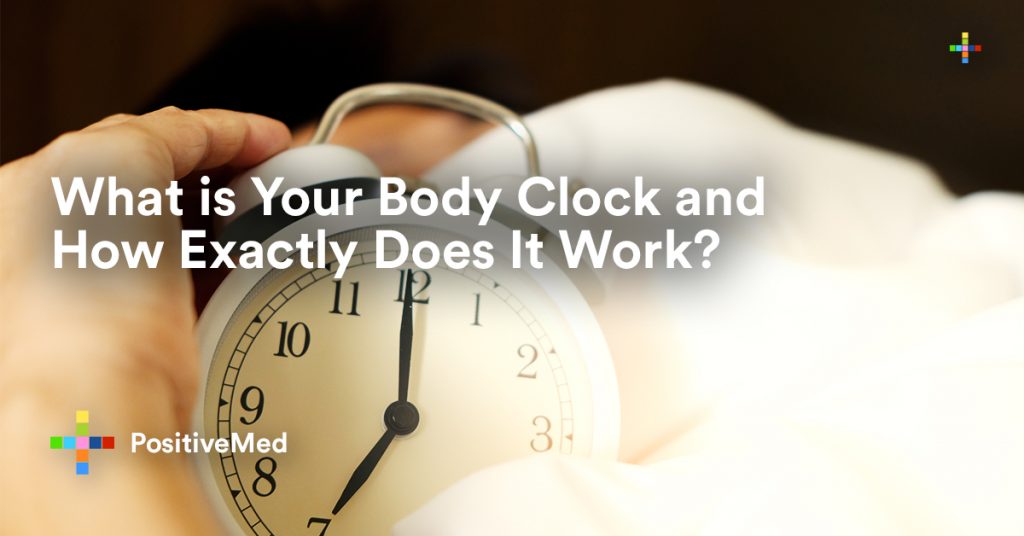This is an internal body clock that helps you to track your time well. It is also known as circadian clock. Circadian comes from the

If you can be kept in darkness your body still work around a cycle of 24 hours. Therefore, the body clock is intracellular clock in your individual cells that will help you to be able to manage and keep your time well. This is because if you can put cells in a dish, they will show24 hour changes in expression of your genes.
However, if you do not have cues every day, you might get half an hour late. Thus, it is strange that you have a molecular clock which is like an old fashion mechanical clock. This clock also needs to be adjusted to the environment to keep it correct every day.
Application of your body clock.
The main significance of circadian clock allows anticipation. It also passively responds to the environment-it get light, so you wake up. It also changes your behavior and internal physiology that signals there is a change in the environment.
Should you listen to your body clock or alarm clock?
A good example is that of shift work. If you operate at the nights and your body will tell you to go to sleep. Thus, this will affects your mental performance during the night. However, if you shift work for several years, you do not change your body as being active at night. Therefore, the logic behind is that light is the fundamental cue which sets your body clock.
How does it work?
Your body clock run like Swiss watch
Body clock operates in an area known as the suprachiasmatic nucleus (SCN) which is situated above the point in the brain where the optic nerve fiber crosses. The position of the SCN to receive cues it needs light from the environment to assist it in keeping time.
Nevertheless, your genes also influence your body clock. Therefore, the system requires both light and genes as input to keep it on track. For example, to stay on for the 24-hour cycle, your brain needs the input of sunlight through the eyes to reset it every day. The need for both genes and light makes your biological clock as a classic example of how the environment and genes work to assist the system to function well.
Your behaviors and body functions run on cycle
The daily cycle of our body is as a result of a hormone known as melatonin. During the night there is less supply of light input to the SCN, thus the hormone that is responsible for making you feel sleepy take control. This means during the night melatonin is concealed which sends signal to the brain to switch into sleep mode. When the sun rises, the production of melatonin is repressed, and the brains circuits wake you up.
The biological clock can control other systems that follow daily rhythm because some are also controlled by hormones and other compounds that also receive cues. For example, the hormone that is responsible for your metabolism and hunger rise and fall during the day. However, compounds that boost inflammatory response rise at night and reduce during the day light.
Related Link: Bedtime Yoga Sequence for a Deep Sleep
Shift work
Shift work is a good example of how you can get yourself off the cycle, and you can also develop a circadian disorder rhythm over the long period. When you work at the night shift, it will not only affect your sleeping patterns. It will also affect other systems in your body functioning, and sometimes it can be chronic. Researchers have not exactly found why this connection exists, but there are changes in metabolic processes during the night.
Therefore, these phenomena outline how specific lifestyles and behaviors might affect the body clock. That’s why you feel sleeping during the night and experience insomnia in the day. Conversely, body chemistry and genetics are also altered by this factor of the work shift.
Jet lag
When you fly across the country is the main example of how you can disrupt your clock. When jet lag starts over you feel foggy, sleepy, and disoriented at the erroneous times of the day. This is due to changes in time zones, and your body clock will be different compared to the environmental time. Sometimes jet lag can be considered as a type of circadian rhythm disorder.
Therefore, you can treat it by allowing your body to adjust to the new time. However, it might take several days for external cues to assist the internal clock to catch up or normalized with new environmental and behavioral cycle.






